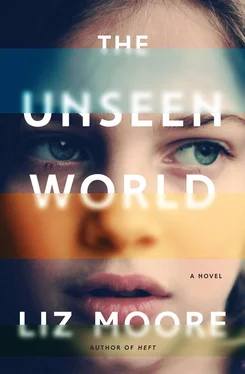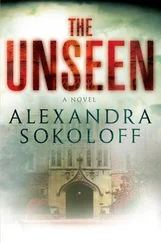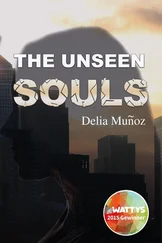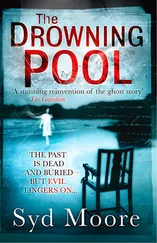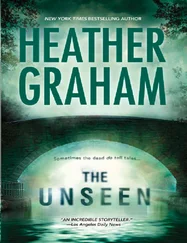David was forty-six when Ada was born and had already been head of his own lab for sixteen years. For the first years of her life — when she was too young to entertain herself for long days at work — Ada had a nanny, Luda, a tall, soft-spoken Russian woman with one long braid down her back, whom David hired to watch her while he was out. But at night and on the weekends it was David and Ada alone. The fact that she survived her infancy astounded her sometimes. She couldn’t imagine it, though she often tried: David, waking up in the night to attend to her, warming bottles, boiling them; or preventing her from falling off of anything high or running into anything low or being bitten by anything mean; or taking her to the park in a stroller; or folding her snugly into a blanket; or gazing down at her while she ate from a bottle; or letting her fall asleep on his fatherly chest: these actions seemed so incongruous with Ada’s idea of David as to be impossible. And yet he must have done these things: she was alive as the proof.
Ada’s memories of David began later, with their conversations. She could not remember not talking to David. Every waking hour was, in his mind, an opportunity for interesting conversation, a chance to analyze their lives and the lives of all humans. “Are we very happy, Ada?” he often asked her, and she always said yes, though sometimes with hesitation — as if she knew that the question itself implied the opposite. But for the most part, she was utterly content with her strange, satisfying existence: Ada and David together, always.
He had small rituals: he made tea in an elaborate old-fashioned way that, he said, his mother taught him; and he watched a certain police drama religiously, the only television show he enjoyed, often shouting out the perpetrator’s name halfway through the episode, crowing each time he was correct; and when Ada was small, before bedtime he would read to her from books that he loved, never children’s books; and on Sunday afternoons he liked to go to a particular café in Dorchester to organize his brain. Ada did whatever homework he had assigned her while he wrote out formulas and drew diagrams, in his cramped particular handwriting, on stacks of napkins provided to him by Tran, the eponymous owner of the café, who was himself an amateur scientist, well versed in Feynman and Planck. Her father, though a computer scientist by profession, had a strong background in pure mathematics. He was interested in all the sciences, and in the humanities as well: he had learned French as a boy and still spoke it fairly well, and from time to time would attempt to teach himself something like Mandarin or Portuguese. “A well-rounded thinker should be able to puzzle out from scratch any proof that has ever been proven,” he said to Ada, and so sometimes to keep sharp he would work out some problem of physics or mathematics, although it had nothing to do with his research. When he was working on these, or on any puzzle, he would fall into a trance familiar to his closest associates — in which his body seemed utterly, utterly at the will of his mind — in which his hands, writing furiously, seemed overtaken by a ghost. He was expressionless, an automaton, and could not be spoken to until he returned. On the occasions when, in one of these trances, he worked himself to sleep, Ada put a hand on his shoulder — one of the few times she ever touched her father — and he sat up and blinked, disoriented, until he realized where he was.
Her father spoke of his past only rarely, but occasionally he would agree to tell Ada the tale of his life as a story before bed. She begged him to: it was a way of expanding her family, a way to counteract the feeling she sometimes had that the two of them were stranded on an island. To comfort herself, Ada sometimes narrated his life in her head, using the wording he would have used.
David was born in New York City, he told her, the only child of wealthy parents to whom he would eventually stop speaking. They died before Ada was born. He described them with bitterness and scorn, ridiculing their conventionality, their closed-mindedness, their snobbery. (Ada did not point out to her father, though it occurred to her, that many of his opinions could be labeled snobbery as well; and that his last name, well known in the Northeast, had opened various doors for him that he seemed not to notice.) The rift between David and his parents, which led at last to a complete estrangement by his late twenties, was caused by differences of opinion regarding how he should live his life— the phrase he always used. He hinted vaguely at their displeasure at his choice of career, his refusal to accept their introductions to the various young ladies they would have liked to see him marry, his refusal to obey the conventions and codes that accompanied the family’s status. “Debutantes and that sort of thing,” said David. “Charity balls. Teas .” At the mention of these terms he would shudder, which signified an end to the story. Ada rarely pressed him beyond this point.
The derisive, sardonic tone he used when speaking of his past implied he had long ago moved on, had long ago dismissed those families and their ilk as fraudulent and obsolete. From his scraps of description Ada gathered that his mother and father were stern and impersonal. Worse than that, she categorized them as uncreative — David’s term, one he used only for those he held in complete disdain. His father had been a sort of gentleman attorney, one who only took on clients who were personal friends, and only then if he could be sure the work would end amicably. His mother had no career aside from identifying and articulating the flaws of her husband and son. Every conversation with her, he told Ada, was like a game of chess: one had to remain several steps ahead of her to ward off whatever criticism would be imparted if one’s guard was let down.
In these moments Ada was jolted by a sudden vision of David as a child, subservient to his parents, not the master and commander of everything around him, as she’d thought of him for most of her childhood. It was difficult to picture.
This much she knew: David was raised on Gramercy Park in a grand and beautiful row home, up which ivy spread densely and then in rivulets, like fingers from a palm. She saw it once a year, in winter, when David took her for a weekend trip to New York City for Calvary Episcopal’s annual Christmas concert. It was his childhood church — the only site from his childhood that he ever wished to revisit — and it was his favorite sort of music: early choral composition by Tallis and Purcell. He was not churchgoing, but it was liturgical music that moved him the most, and he sat very still and upright in the old wooden pew for the duration of every song, his head bowed as if in prayer. Only his fingers moved from time to time, playing his knees like an organ.
Afterward David would walk swiftly out the door, and Ada would run to keep pace with him — difficult to do, for he walked as if he were skating, with a lengthy, forceful stride — and turn left toward Gramercy Park, and then stand silently with Ada outside of the house for several seconds. They never spoke. Usually the heavy drapes inside the house were drawn by the time the concert let out, but once Ada saw a young girl, about her age, sitting with her mother at a dining room table. “I wonder if those are Ellises,” said David idly, naming the family who purchased the home after the death of his parents. “I read about them in the paper. I’ve never met them.
“I would have been the only heir,” he told Ada. “I wouldn’t have taken it anyway,” he added, and then he walked quickly down the street, without warning her, so that she had to run for several steps to catch him.
Despite his complete dismissal of his past, he kept one black-and-white portrait of himself with his parents in the dresser in his bedroom. Ada had discovered it when she was quite young and often returned to it whenever he was out. There he was, young David, perhaps eleven years old. In the picture he was wearing a bow tie, a tweed jacket with a high waist, short pants, knee socks. A very slight smile played upon his mouth — same mouth, same lively light eyes. His parents looked predictably dour and serious: mother in a black scoop-necked satin dress that ended just above her ankles, black stockings and black shoes, a long black beaded necklace. Father in a dark suit and tie, one leg crossed over the other. All three of them were positioned slightly apart from one another. In the background was a funny scene: draperies, slightly askew, framed a fuzzy, impressionist backdrop of trees and mountains.
Читать дальше
